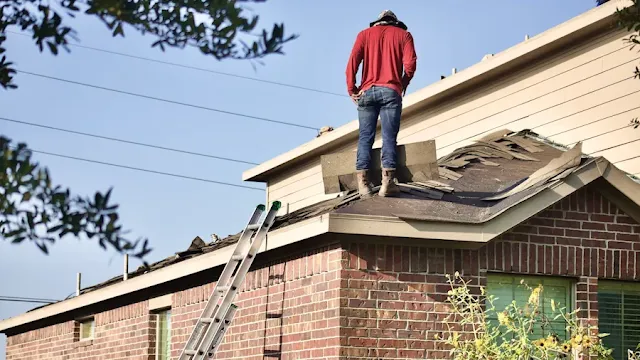When it comes to protecting your home, the roof is as crucial as the foundation. But when leaks appear, the big question for many homeowners is: Does homeowners insurance cover roof leaks?
Homeowners insurance companies often increase rates significantly or drop coverage after even a minor claim. It's a system where you're required to pay for insurance while you have a mortgage, but making claims, especially for smaller issues, can be problematic. In the event of a major disaster, securing a payout often involves a struggle.
If you report an old leaking roof to your insurance, they will typically inspect it. If no damage is found, you may receive a letter advising you to replace the roof by a certain deadline to prevent further damage to the property.
Let's dive into the specifics of what is typically covered under a standard homeowners policy and what isn't.
What's Covered Under Homeowners Insurance?
Homeowners insurance generally covers roof leaks if they are caused by "sudden and accidental" events. This means that incidents like storms or fallen trees that lead to damage could qualify for coverage. Here are some common scenarios where homeowners insurance would likely step in:
- Fire Damage: For instance, an electrical short could spark a fire in your attic, damaging the roof.
- Severe Weather: Heavy snowfall might collapse a tree onto your structure, or massive hail could puncture the shingles.
- Wind Damage: Strong winds might rip shingles or tiles from your roof. Note, while most policies cover wind and hail, those in certain coastal regions might need additional coverage.
In addition to the roof itself, your policy may also cover damage caused by the leak to other parts of your home, like if a leak ruins the furniture or flooring in a room below.
Typically, home insurance provides coverage for damage resulting from several common hazards, such as:
- Windstorms
- Hail
- Damage from snow, sleet, or ice
- Lightning strikes
- Fire
- Falling objects
Why would a water damage claim be denied?
Claims for water damage that occurs gradually, like from a neglected pipe or a slow roof leak, are generally not covered. Property owners are expected to address and repair issues promptly. Neglecting to maintain the property can lead to a denial of the claim.
What's Not Covered?
Your insurance is unlikely to cover a leak that results from age, wear and tear, or poor maintenance. Here are other common exclusions:
- Natural Ground Movements: Earthquakes, landslides, and similar earth movements typically aren't covered under standard policies.
- Pest Damage: Problems caused by animals, birds, or insects might not be covered.
- Mold and Fungus: Issues like mold and mildew arising from lingering dampness might be excluded.
- Intentional Damage and Neglect: Any damage that results from neglect or intentional harm won't be covered.
- Faulty Workmanship: If the leak stems from poor construction or materials, your policy won't cover it.
Understanding Policy Details
The roof is considered part of the dwelling coverage in your home insurance, which protects the structure of your house. Most policies offer "open perils" coverage, meaning your roof is protected from all types of damage unless explicitly excluded. However, it’s crucial to read your policy carefully and check with your insurance agent to understand the specific exclusions and conditions.
Remember, any payout from a claim will have the deductible subtracted, which is the amount you’re responsible for before the insurance kicks in. It’s essential to know your deductible and factor it into any financial planning for home repairs.
Final ThoughtsIn conclusion, while homeowners insurance can be a lifesaver when it comes to sudden, accidental roof damage, it's important to maintain your roof well to prevent issues that are not covered by your policy. Regular inspections and maintenance can extend the life of your roof and ensure that you remain within the terms of your insurance coverage. If you're unsure about what your policy covers, or if you need additional coverage, a conversation with your insurance agent can provide clarity and peace of mind.
Does Home Insurance Cover Roof Leaks?
Does Homeowners Insurance Cover Roof Leaks?










